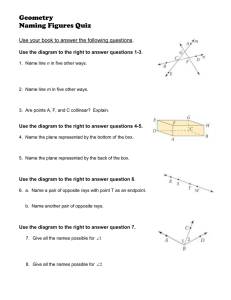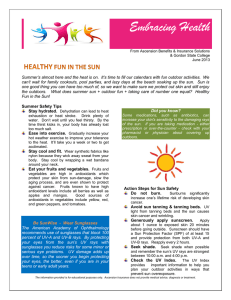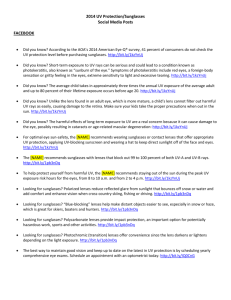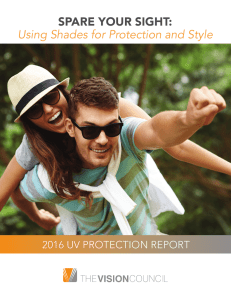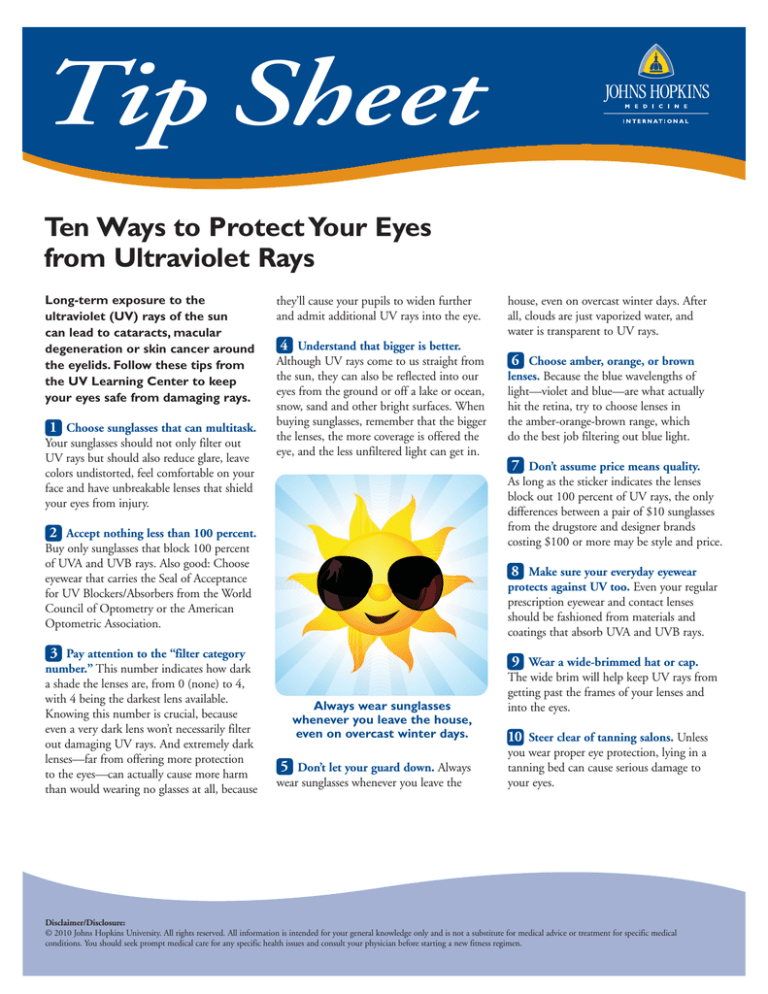
Tip Sheet
Ten Ways to Protect Your Eyes
from Ultraviolet Rays
Long-term exposure to the
ultraviolet (UV) rays of the sun
can lead to cataracts, macular
degeneration or skin cancer around
the eyelids. Follow these tips from
the UV Learning Center to keep
your eyes safe from damaging rays.
1 Choose sunglasses that can multitask.
Your sunglasses should not only filter out
UV rays but should also reduce glare, leave
colors undistorted, feel comfortable on your
face and have unbreakable lenses that shield
your eyes from injury.
they’ll cause your pupils to widen further
and admit additional UV rays into the eye.
4 Understand that bigger is better.
Although UV rays come to us straight from
the sun, they can also be reflected into our
eyes from the ground or off a lake or ocean,
snow, sand and other bright surfaces. When
buying sunglasses, remember that the bigger
the lenses, the more coverage is offered the
eye, and the less unfiltered light can get in.
6 Choose amber, orange, or brown
lenses. Because the blue wavelengths of
light—violet and blue—are what actually
hit the retina, try to choose lenses in
the amber-orange-brown range, which
do the best job filtering out blue light.
7 Don’t assume price means quality.
As long as the sticker indicates the lenses
block out 100 percent of UV rays, the only
differences between a pair of $10 sunglasses
from the drugstore and designer brands
costing $100 or more may be style and price.
2 Accept nothing less than 100 percent.
Buy only sunglasses that block 100 percent
of UVA and UVB rays. Also good: Choose
eyewear that carries the Seal of Acceptance
for UV Blockers/Absorbers from the World
Council of Optometry or the American
Optometric Association.
3 Pay attention to the “filter category
number.” This number indicates how dark
a shade the lenses are, from 0 (none) to 4,
with 4 being the darkest lens available.
Knowing this number is crucial, because
even a very dark lens won’t necessarily filter
out damaging UV rays. And extremely dark
lenses—far from offering more protection
to the eyes—can actually cause more harm
than would wearing no glasses at all, because
house, even on overcast winter days. After
all, clouds are just vaporized water, and
water is transparent to UV rays.
8 Make sure your everyday eyewear
protects against UV too. Even your regular
prescription eyewear and contact lenses
should be fashioned from materials and
coatings that absorb UVA and UVB rays.
Always wear sunglasses
whenever you leave the house,
even on overcast winter days.
5 Don’t let your guard down. Always
wear sunglasses whenever you leave the
9 Wear a wide-brimmed hat or cap.
The wide brim will help keep UV rays from
getting past the frames of your lenses and
into the eyes.
10 Steer clear of tanning salons. Unless
you wear proper eye protection, lying in a
tanning bed can cause serious damage to
your eyes.
Disclaimer/Disclosure:
© 2010 Johns Hopkins University. All rights reserved. All information is intended for your general knowledge only and is not a substitute for medical advice or treatment for specific medical
conditions. You should seek prompt medical care for any specific health issues and consult your physician before starting a new fitness regimen.

